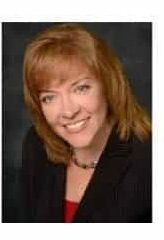by Brenda Bonin
Over the years, I’ve helped many clients who were relocating in retirement. Many of them moved to live closer to family. Others desired a warmer climate, and some relocated for health or financial reasons. Whatever your motivation, there are some important considerations. Now that my husband and I are leaning into retirement, we are grateful we learned from the experiences of others to help us make good decisions.
Start with a Clear Vision for Your Retirement Relocation
What do you, or you and your spouse, want your retirement to look like? Spend some substantial time and focus on this starting point. Determine the lifestyle you want to have in terms of purpose, passion, hobbies, activities, time with family, travel, housing, and other elements that are important to you.
Cindy, a widow who moved from Montana to North Texas to be close to her only daughter and enjoy warmer weather is a wonderful example of a success story. She purchased a home in a 55+ community where she thrives, enjoying many of the amenities and activities not available to her in Montana. Golf, Pickleball, and Mahjong led to new friends and sociability in her new community and friendly competitions with her family. However, the intense summer heat is a bit more difficult than she anticipated.
Unfortunately, some clients’ stories are not happy ones. Carol and Ron relocated from Dallas to North Carolina. As they always dreamed of living near the coast and mountains, they sold their Texas home and purchased a rural property in North Carolina. They planned to hike, boat, camp, and fish in their new home. Sadly, Ron had a heart attack, passing away just two weeks after moving in. Carol was now completely without a support system in unfamiliar surroundings while dealing with the shock of the sudden and crushing loss of her husband. Her family, scattered across the country, traveled to help initially, but their presence was temporary. She felt somewhat stuck as they spent a good portion of their savings on the new home, paying 100% cash. And the remote living didn’t easily facilitate the building of a support network. With any relocation, establishing new social and service provider relationships takes time, and is made even more difficult when a person is suddenly on their own.
Think carefully about your retirement relocation before making a move. As we age, it’s important to consider the possibility of illness, disability, or death of one of the spouses. Ideally, you want to move somewhere where you can continue to age comfortably.

Pros and Cons of Relocating in Retirement
Weighing the benefits versus the drawbacks of relocating in retirement requires a thorough analysis. This list is a starting point for general considerations. As every situation is unique, add others that may apply to your particular situation, such as weather, proximity to family, and access to transportation. No one wants to consider the worst-case scenario, but for planning, doing so is essential.
Pros:
Retirement is a chance to hit the reset button and design your dream life and relocating opens doors to exciting possibilities. Here are some of the specific pros of relocating I hear most often from my clients.
• Fresh start/new adventure
• Living situation that better suits your desired lifestyle
• Potential savings through lower cost of living
• Fulfilling a life-long goal of living in a particular place
Cons:
We know that unfortunately, relocating in retirement isn’t all sunshine and rainbows. Leaving behind your established life is emotionally wrenching for some. Below are some of the common negatives of relocating in this phase of life.
• Creating a new support system of friends, neighbors, faith community, healthcare, and other service providers
• Cost and stress of moving
• Leaving behind familiar people and places
• Uncertainty

How to Find the Right Retirement Community
Finding the right retirement community can be a challenge, but by prioritizing and planning, you can find a retirement community that feels like home. Consider your priorities: Budget, desired location, and lifestyle are key. Research online resources, then explore communities that pique your interest. Talk to residents and staff, attend events, and get a feel for the atmosphere. Don’t forget to factor in healthcare availability to ensure your long-term well-being.
Seniors Real Estate Specialist (SRES)
Working with an experienced real estate professional who specializes in the 50plus market tends to make the process easier and result in a better outcome. One resource you might look for is a Seniors Real Estate Specialist or SRES. This is a licensed realtor who earned the designation as someone specially qualified to address the real estate needs of adults 50Plus. You can find realtors with this credential at seniorsresource.realtor. Make sure you consider more than just the SRES designation; look for expertise as evidenced by testimonials, activity, and focus on the 50+ market.
Active Adult Communities for 55Plus Living
I also recommend you check out 55places.com. Here you can identify the different active adult communities in your target area that cater specifically to those who are age 55 and better. This site is great for researching the pros and cons of 55+ living and helping determine if this lifestyle is a good fit for you. There are many draws, such as low-maintenance living, activities, security, and living among other older adults, but pay attention to restrictions. Homeowner’s association (HOA) fees can be costly and increase over time, and many people don’t like the limitations dictated by these HOAs.
Matching Personal Retirement Lifestyle Goals with Communities
Ideal Living offers a wealth of information that helps you identify your personal retirement lifestyle goals and find communities that match. Some communities offer structured Discovery Tours, where you can visit and experience what life might be like living there. In any case, a visit to the area and the property of interest is critical to making an informed decision.
Try Before You Buy: Short-Term Rentals
My husband and I plan to give a place a trial run before taking any major action, such as selling our house or buying a new one. Airbnb and VRBO hosts often offer longer-term rentals, such as a three-month stay. This approach worked well for several of my clients who arranged a longer-than-vacation stay in the area they were considering. A couple from northern California, Rob and Tina, wanted to move to the Dallas area to live close to their grandkids. They first did a short-term rental in an outlying suburb where home prices were more affordable than in the city. Though Rob and Tina felt very comfortable with their decision to move to the area, they found they loved the activities in downtown Dallas. The drive from the suburb where they originally stayed was too far to easily get to their favorite museums and sporting events. They decided to purchase a home in a historic Dallas neighborhood with easy access to the venues they frequented, relieved they hadn’t rushed to buy in the suburb where they stayed. Experiencing living in a place provides much richer insight than any amount of research and analysis.
What Is Hybrid Living?
Most everyone is familiar with the term Snowbirds, retirees who head south for the winter; Sunbirds are those who head north in the summer. For example, Maggie, a woman from Michigan, missed the four seasons and lake lifestyle she experienced in her earlier years. So, she rented out her home in Texas and found a rental in her favorite town in Michigan. She soon found that the winter was too long and gray for her taste, so she kept her home in Texas and purchased a second home in Michigan, where she goes from the late spring through early fall.
I personally lean toward this type of split living, which can provide the best of both worlds. With this lifestyle, you keep the benefits of your familiar home and explore another location and weather pattern.

Financial Planning Tips for Relocating in Retirement
While deciding to relocate is not entirely a financial decision, financial considerations are important. Cash flow and liquidity are two critical elements of your analysis.
Cashflow Implications
Start with a good understanding of your current cash flow and determine what changes with the proposed move.
Income
If you plan to work, how is the job market?
If you are a couple, what happens to the income streams when one of you passes?
How is your income taxed now vs. in the proposed location?
Expenses
Create a complete itemization of all expenses. Too often, people focus only on a single expense, such as income tax. While income tax may be lower in the new home state, property taxes, and homeowners’ insurance might be higher.
Liquidity
Liquidity refers to how quickly and easily you can convert your assets to cash. Before retirement, most experts recommend having six months of expenses in reserves. After retirement, depending on who you ask, the recommended reserves are one to two years of expenses. Having sufficient liquidity helps preserve other assets by avoiding unplanned divesting in suboptimal market conditions.
Moving expenses
Will you need to dip into other assets to pay for the expenses of relocation? The costs of moving in retirement can be significant.
Buying a home in retirement
Traditionally there are two ways to buy a home: cash purchase or traditional mortgage financing. Both have drawbacks. While an all-cash purchase avoids a monthly mortgage payment, it is not good for liquidity. All the cash that is used to buy the home becomes illiquid. A traditional mortgage, of course, requires a monthly payment, which is not good for cash flow. A third option now exists for homebuyers aged 62-plus: the Lifestyle Home Loan, also known as the HECM (Home Equity Conversion Mortgage) for purchase. This option requires a large down payment, but there are no mortgage payments required, so the buyer maintains more liquidity and avoids a required monthly payment. When buying a home, it is important to understand all of your options. As with choosing a real estate agent, seek the advice of a mortgage professional who specializes in working with retirees.
The Bottom Line
When deciding whether or not to relocate in retirement, there is no simple formula to follow. Each person or couple must consider the numerous factors of relocation and decide what is best for their unique situation. Even with thorough analysis and planning, you can count on some things not meeting expectations. Keep your personal vision in mind but know that you might have to make some adjustments along the way.
Ready to find your perfect next chapter? Start your research today! Please let us know what you decide to do in retirement in the comment section below – we want to hear from you!

FAQs
Here are some commonly asked questions from our readers about relocating in retirement.
Is relocating in retirement a good idea?
Moving in retirement can be a new and exciting option. Your new location may provide a lower, more affordable, cost of living, warmer weather if desired, and/or closer proximity to family. Active adult or 55+ communities often provide new opportunities and friendships that were previously unavailable.
How much does it cost to relocate in retirement?
Costs vary greatly depending on your location and desired lifestyle. You’ll want to research different communities and factor in housing costs, cost of living adjustments, and potential moving expenses.
What should I consider when choosing a retirement community?
Think carefully about your needs and identify your priorities before you make any decisions. Consider your budget, desired climate, and lifestyle. We recommend you visit communities in person to get a good feel of the place. And don’t forget to consider healthcare in retirement!
When should I start planning my retirement relocation?
The sooner you start planning, the better! Give yourself ample time to research, visit communities, and sell your current home. Will you be downsizing in retirement or going bigger to accommodate grandkids? Do you want a one-story considering stairs might become difficult as you age? Are you looking for a lower cost of living in retirement or is budget not a primary consideration? Just food for thought.
About the Author: Brenda Bonin
 Brenda Bonin is a mortgage consultant serving the DFW area for more than 20 years. She views a mortgage as a financial instrument that can help homeowners achieve their big-picture financial goals. She is passionate about getting families the right mortgage when they purchase their home and when they can benefit from a refinance. This includes offering the HECM (Home Equity Conversion Mortgage), specifically for homeowners aged 62 and wiser. Reach Brenda at BBonin@mutualmortgage.com or mutualreverse.com/brenda-bonin.
Brenda Bonin is a mortgage consultant serving the DFW area for more than 20 years. She views a mortgage as a financial instrument that can help homeowners achieve their big-picture financial goals. She is passionate about getting families the right mortgage when they purchase their home and when they can benefit from a refinance. This includes offering the HECM (Home Equity Conversion Mortgage), specifically for homeowners aged 62 and wiser. Reach Brenda at BBonin@mutualmortgage.com or mutualreverse.com/brenda-bonin.










